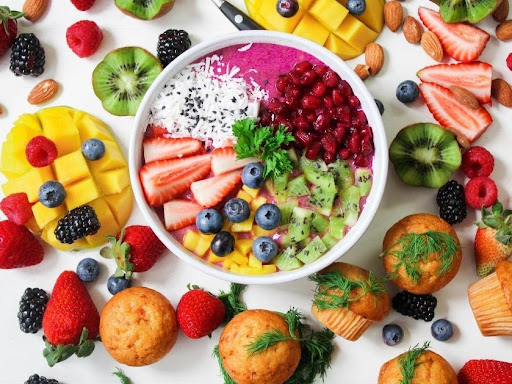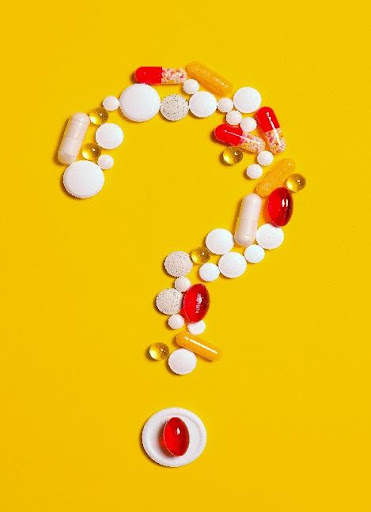Vitamins and Minerals
Do you get enough vitamins and minerals in your diet? Do you need to supplement your diet with more?
If you eat a healthy balanced diet, the answer is probably that you are okay with what you are eating at the moment (we will have a look at vitamin insurance later on though).

Photo Healthy foods
In certain circumstances it is unlikely that you do get enough and supplementation would be a good idea. These include:
- for Vegetarians
- in pregnancy
- if you have a food allergy
- if you are on a very limited diet (maybe as a student etc).
Vitamins can be thought of as a catalyst for the body - a certain amount is needed to make it function properly, but any more can't make it function 'more' properly: once a vitamin is doing its job, no matter how much you have it can't do any more. Minerals regulate functions in the body to ensure they happen properly.
Vitamin Insurance
You will often hear athletes saying that they are taking this vitamin or that supplement. Whilst these things may well be beneficial, they can also sometimes be unnecessary (see above) and, as they can be expensive, do little more than burn a whole in your pocket.
Having said that, there is an argument that ensuring you get a good level of vitamins with a multivitamin tablet once a day can act as a kind of vitamin & mineral insurance. These can be relatively cheap (from only 2-3 pence a day) particularly if you buy own brand labels.

Photo Vitamins
This is just a back up to a good diet and should not replace it. Think of it as a safety net as you would household, car or travel insurance.
Key Vitamins & Minerals for Runners
- Vitamin B - helps release energy from food and makes nerve and muscle tissues function properly.
- Vitamin C - known as the anti-cold vitamin, also useful for hard structures in the body - eg bones, teeth, cartilage etc.
- Vitamin D - vital for general health and a vitamin we could all do with topping up with a supplement (one of the few not got well from food), particularly in the winter as it is generated by exposure to sun.
- Vitamin E - helps with maintenance of the immune system.
- Glucosamine - used for connective tissue repair.
- Omega 3 - these are fish oils.
- Calcium - vital for bones.
- Iron - used in red blood cell production and so facilitates improved oxygen carrying capacity of blood.
- Magnesium - counters tiredness and depression, also key for bone strength and heart and nerve function.
- Potassium - a deficiency of this causes a lack of energy due to poor control of bodies water balance.
- Zinc - necessary for growth, testosterone and cell reproduction alongside improving immune function.
- Folic Acid - helps with the production of red blood cells.
The information here is written by athletics coaches who have read widely into the subject, and not a sports nutritionist, so is about gearing your food and drink to the practicalities of running as opposed to expert dietary advice.
